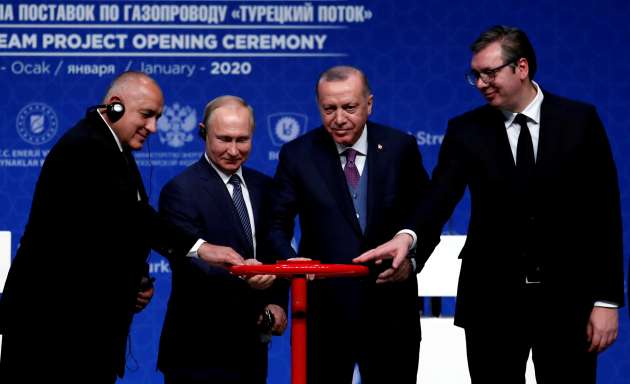"Things escape us in Libya" : this cry of the heart was launched on January 15 in Brussels by the boss of European diplomacy, Josep Borrell. More than eight years after the death, in October 2011, of Muammar Gaddafi and the fall of his regime, following an insurrection supported by NATO, the regional balance around the former oil eldorado in Africa North is rocking.
More than eight years of absence, inconsistencies, of American disinterest and power struggles in a European Union obsessed with the double "danger" (migration and armed groups) associated with Libya ended up opening a boulevard to outsiders, too happy to infiltrate the field of ruins.
While fighting has ravaged the outskirts of Tripoli since April 2019, Russia and Turkey are these new players dreaming of sponsoring a future political solution in Libya. An edifying scene illustrated this great geopolitical reversal in the eastern Mediterranean: that of the reunion on January 8 in Istanbul, between the Turkish president, Recep Tayyip Erdogan, and the head of the Kremlin, Vladimir Poutine.
On that day, the two men ostensibly displayed their complicity when announcing the launch of TurkStream, a gas pipeline connecting Russia to Turkey via the Black Sea. Most importantly, they launched a joint call for a ceasefire in Libya "From January 12" and, a sign of their growing influence on a terrain where they had hitherto been rather discreet, the truce was relatively respected by their local associates.

In the ongoing battle around Tripoli, Moscow supports dissident marshal Khalifa Haftar, head of the Libyan National Army (ANL), especially rooted in Cyrenaica (east). For its part, Ankara supports the government of national agreement (GAN) of Faïez Sarraj, based in Tripoli and formally recognized by the international community.
Climbing and lulls
Nine months after Haftar’s assault on the Libyan capital, the Russians and Turks have demonstrated that they are the masters of the tempo on this front, capable of alternating escalation and lull. This is a fundamental change. The new scenario underway in the Libyan theater looks like it can be mistaken for the process of Astana, the old name of the Kazakh capital which had hosted, in May 2017, the talks between Russia, Iran and Turkey , with a view to " de-escalation "Of the Syrian conflict, but which in practice resulted in the division of the region into zones of influence, while marginalizing the negotiations started under the aegis of the United Nations.




